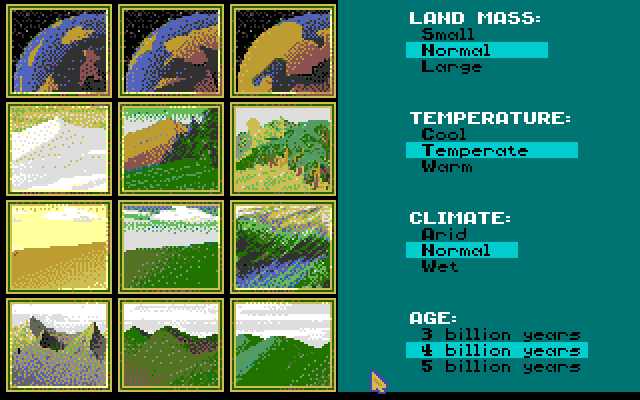

Guns, Germs, and Steel
Jared Diamond, 1997
Subject
In this Pulitzer-Prize-winning treatise, one of the most famous
books of the last ten years at least, geography professor Jared
Diamond attempts to answer the question of why Europeans came to
dominate the world rather than, say, New Guineans or Aztecs. He
concludes that geography is the key factor. Eurasia, with its huge...
tracts of land... contained the most plant and animal species suitable
for domestication. The opportunity to rely on food production rather
than hunting and gathering allowed many Eurasian societies to become
sedentary and develop civilization. The east-west orientation of the
continent allowed plants, animals, and technology to spread quickly to
other civilizations at similar latitudes. On other continents, even
those societies that did develop agriculture that allowed them to grow
beyond small bands of hunter-gatherers were confined by geographical
factors to relatively small areas with little contact with other
regions; consequently their technology lagged behind that of the
Eurasians, while their immune systems, exposed to relatively few
diseases, remained susceptible to visitors' germs. Thus, the fact
that we do not live in a world in which aboriginal Australians
colonized and enslaved the rest of the world is not mere happenstance.
Evaluation
This was my third time through Guns, Germs, and Steel. The
first two times I read Jennifer's copy, and after we split up I decided
to get my own. The fact that I shelled out for a book with which I was
already quite familiar should give you a pretty good clue what I thought
of it.
Commentary
I'm going to confine my remarks to one small portion of the book. In
the epilogue, Diamond makes the case that history can be approached as
a science — just not an experimental science. He admits
that "laboratory experimentation can obviously play little or no role
in many of the historical sciences. One cannot interrupt galaxy
formation, start and stop hurricanes and ice ages, experimentally
exterminate grizzly bears in a few national parks, or rerun the course
of dinosaur evolution." He points out that "cultural anthropologists,
unable to provide human groups experimentally with varying resource
abundances for many centuries, still study long-term effects of
resource abundance on human societies by comparing recent Polynesian
populations living on islands differing naturally in resource
abundance." In short, it'd be great if he could test his theories
out on a different set of continents, but we've only got the one set:
we can't whip up new ones and see what happens.
Except that as a kid one of the chief ways I entertained myself was
by doing precisely this. I played a lot of Seven Cities of Gold,
for instance. Seven Cities allowed you to play on a historical
map, but you could also select a generated one — and I was very
much struck by the claim in the manual that the generated maps were not
entirely random but were based on plate tectonics. None of the many
maps I played on gave me any reason to doubt this. After Seven
Cities, in fact, I was almost disappointed by Civilization's
maps... the continents didn't seem very realistic. Perhaps they're
better in the newest version. I suppose I'll find out when I get a
computer that can actually run it.
Many people reading this know me as an author of interactive fiction,
but I didn't play much IF growing up — nor graphical adventures,
for that matter. I played games with maps. In the late 1980s, when
I fantasized about the computer games I would someday write, Zork
was the farthest thing from my mind; I wanted to write a hardcore
update of Balance of Power, with crops and religion and
Equatorial Guinea and stuff. In the mid-1990s, in the same notebook
in which I mapped out Ready, Okay!, I jotted down pages' worth
of notes for a strategy game with algorithms for how religions would
be affected by climate (following Huston Smith's conjectures on the
topic) and how they would in turn affect various aspects of each
civilization on the globe. In 2003 when I went looking for a newer
computer game to try, Europa Universalis II
was my first and only choice.
So every time I've read Guns, Germs, and Steel, I have been
overcome with the desire to see it adapted into a computer game. I
want to generate an all-new set of continents and rerun
millions of years of genetics to see which plants and animals end
up where and how that affects where civilization starts. I want
to see iron tools spread throughout Laurasia and epidemics rage
across Gondwana. I'd love to dust off the old C books and work on
it myself... but no, I have too many projects as it is, and it would
be insane to even begin one this ambitious. By the time I finished,
I'd be in a nursing home. But believe you me — if I had time,
I'd make worlds enough.

Return to the Calendar page!
|


